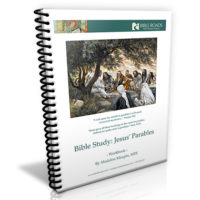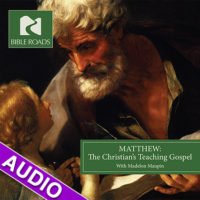With a US presidential election only months away, there is a lot of public talk about wealth and poverty, complete with a vast range of economic solutions offered to voters. About the only solution I haven’t heard is a candidate saying: “Let’s see what Jesus has to say about the subject.” Given how many of the Master’s parables are about wealth or poverty, that would be smart!
Luke’s gospel addresses wealth and the responsibilities of those who have it more than their less fortunate neighbors, more than any other Gospel. For instance, a Seminary professor opens his course on ‘Wealth and Poverty in the Bible’ by having students read Luke 18:18-24 and wrestle with its implications the rest of the semester.
18 A certain ruler asked him, “Good Teacher, what must I do to inherit eternal life?” 19 Jesus said to him, “Why do you call me good? No one is good but God alone. 20 You know the commandments: ‘You shall not commit adultery…’ . 21 He replied, “I have kept all these since my youth.” 22 When Jesus heard this, he said to him, “There is still one thing lacking. Sell all that you own and distribute the money to the poor, and you will have treasure in heaven; then come, follow me.” 23 But when he heard this, he became sad; for he was very rich. 24 Jesus looked at him and said, “How hard it is for those who have wealth to enter the kingdom of God!”
So do we take vows of poverty, as many have interpreted that text over the centuries? Or is Jesus instructing that it’s not money but rather that ‘the love of money’ that is the thing to avoid? But when we ask ‘what does that really mean – the love of money’, we start getting down to spiritual bedrock: not looking to money for security, power and authority, or even for prestige or popularity. Tall order.
Is Jesus, through this and other parables relayed in Luke and Matthew, telling us that how we regard money have something to do with the way we relate to God? You bet—seen especially in this text from Matthew:
Don’t hoard treasure down here where it gets eaten by moths and corroded by rust or—worse!—stolen by burglars. Stockpile treasure in heaven, where it’s safe from moth and rust and burglars (Matt 6:19).
This speaks directly to 21st century consumer buying habits: take charge of our possessions rather than letting them take charge of us. But it also goes a step further. As the parable gets under our skin with yet another reading, it seems to be demanding that God alone take charge of our lives, with possessions as simply one arena in which that occurs. Wow.
This is why I’ve loved diving deeper into these familiar stories which I’m learning are far more nuanced and worldly than simple solutions of ‘either/or’. Neither excusing the wealthy individual who cares little for his neighbor, or the pilgrim who takes pride in his poverty, Jesus’ parables show the ambiguities of human life, especially in Luke’s Gospel.
Luke doesn’t use allegory, meaning he doesn’t set up an explanation of what the parables mean, as Matthew so frequently does. (See Matt. 13 for not only the telling of the ‘tares and wheat’ parable, but Matthew’s “a=b” interpretation of it.)
Maybe Luke wants people to realize how challenging life can be when you’re trying to live this radical stance the Kingdom demands—this yielding of control and concern completely to God. One more reason to challenge ourselves to keep diving deeper. The parables can take it and I suspect Jesus thought we’d do no less.
Please check out the newest BibleRoads Bible Study Workbook on The Gospel of Luke–for individuals and groups–hot off the press, as well as the online video course, “Jesus’ Parables”.





Hi,
Looking forward to class in November. Thanks for this timely and thought- provoking message.
Love,
Susan
Aw, what a wonderful way to pray for our nation in the upcoming election!
Love the question “Let’s see what Jesus has to say about the subject” To stand firm for the government of God and not get fooled by the personalities is my desire.
Pondering the parables always steers my thought to more questions than answers but the pondering is so sweet!